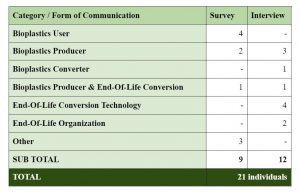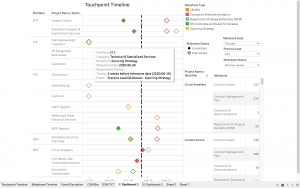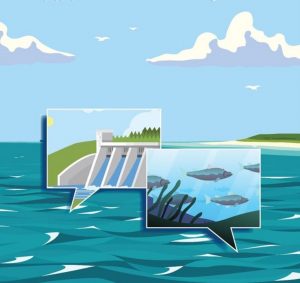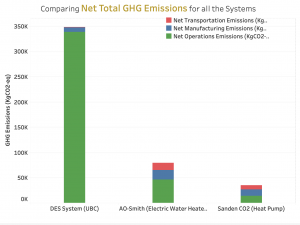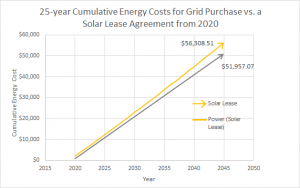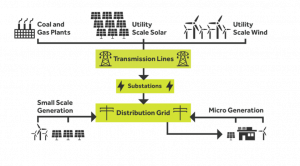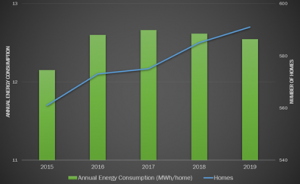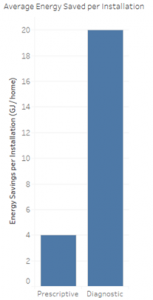Closing the Loop: An Investigation into the End-of-Use of Bioplastics
Carlie Owen, MEL Candidate | December 16, 2020 APPP 506 – Master of Engineering Leadership Capstone Project, University of British Columbia Abstract Since 1950, 79% or approximately 6.6 billion tonnes of plastic has been landfilled or ended up in the environment [1]. This plastic will not biodegrade for hundreds of years. To help reduce the […]
Capstone Project Proposal of Carbon Capture and Storage Phase II
Yaoyao Hu, MEL Candidate | December 2020 APPP 506 – Master of Engineering Leadership Capstone Project, University of British Columbia ABSTRACT: This capstone project is called Carbon Capture and Storage Phase II. In light of the recently declared Climate Emergency at UBC, carbon capture and storage and utilization technology is a necessary pathway to transition […]
Hydrogen Economy in Canada – Production
Robin Watts, MEL Candidate | December 2020 APPP 506 – Master of Engineering Leadership Capstone Project, University of British Columbia Abstract This study was aimed at performing an economic assessment of hydrogen production by electrolysis of water. The Levelized cost of hydrogen production (LCOH) is evaluated for different Canadian provinces using intermittent electricity from in-house […]
BC Hydro Program Management Optimization
Drew Puffer | MEL Clean Energy Candidate | December 2020 APPP 506 – Master of Engineering Leadership Capstone Project, University of British Columbia Acknowledgment: The Category Management Group at BC Hydro. In Particular Kelley Hishon for her ongoing support and guidance and Tania Dashko. I also would like to thank Vladan Prodanovic and Donabel Santos […]
Ocean Heat Pump Regulatory review
Eugene Eweka, MEL Candidate | December, 2020 APPP 506 – Master of Engineering Leadership Capstone Project, University of British Columbia Abstract As part of UBC’s plan to reduce its GHG emissions significantly, the University’s Energy Centre is working towards installing an ocean-source heat pump for the Vancouver campus. This paper explored the multitude of regulations […]
Comparative Analysis of 3 hot water systems for West Coast Suite (UBC)
Shikhar Kumar, MEL CEEN | December 17, 2020 APPP 506 – Master of Engineering Leadership Capstone Project, University of British Columbia Abstract This project supports the UBC Climate action plan which aims to be carbon neutral by 2050. The main aim of the project is to find an ideal hot water heating system with the […]
A Business Model Viability Assessment for Residential Solar Installations in BC
Emma Bowman, MEL in Clean Energy Candidate | December, 2020 APPP 506 – Master of Engineering Leadership Capstone Project, University of British Columbia Acknowledgement: This project was inspired and supported by Michael Pullinger from Energy Revolution Services. Abstract There is an increasing need and obligation to reduce British Columbia’s Greenhouse gas emissions in the foreseeable […]
Alberta Micro-generation Solar Energy Project
Karen Lau, MEL CEEN Candidate | December 18, 2020 APPP 506 – Master of Engineering Leadership Capstone Project, University of British Columbia Introduction As Canada refines its policies to meet their commitments from the Paris Agreement, clean energy projects should be the focus for implementation to help meet the new GHG emissions goals. Within Canada, […]
A biomass energy feasibility study for First Nation in Northern Alberta
Harshil Trivedi, MEL Candidate | December, 2020 APPP 506 – Master of Engineering Leadership Capstone Project, University of British Columbia Abstract A Northern Albertan Nation has engaged Community Power to explore options for renewable energy generation with the goals of reducing electricity expenditure, establishing energy sovereignty, and reducing negative impacts on the environment. Based on […]
Qualitative and Quantitative Comparison of Prescriptive vs Diagnostic Approaches to Energy Efficiency and Conservation
Bernardo Bordeira, MEL Candidate | December 2020 APPP 506 – Master of Engineering Leadership Capstone Project, University of British Columbia Abstract Energy demand in the residential sector has been increasing since 1974 and in Canada it was the second largest energy consumer in 2017. Currently, there are more than 250 different energy programs available for […]
